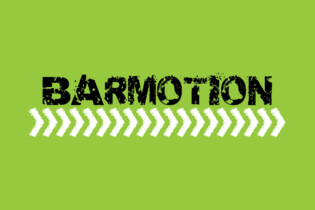The advent and adoption of information and communication technologies (ICT) and the internet of just about everything has accelerated the pace at which all industries operate. For events, it has, in fact, been revolutionary.
From automation to apps that manage each aspect of our lives, the world has witnessed incredible change over the past quarter of a century. ICT has meant that the way in which we work, play and live is ever-changing; for events, in particular, technology has drastically changed how these are managed, marketed, engaged with and experienced. Highlighting why this cannot be ignored, stats released by Cvent show that event technology adoption can increase attendance by 20% and productivity by 27%, while decreasing costs by as much as 30%.
Management
Technology has become an exceptional tool for organising and managing events. Keeping track of registration and attendance lists online and in the cloud was a technological first for the world of meetings and events. Online registration for speakers, exhibitors and delegates has meant that all details can be captured to the satisfaction of each attendee ahead of the event taking place, with very little input or effort required by the organiser.
Attendee registration on the day is now just a matter of a quick sign-in to check off the individual’s name and collect their badge. While event organisers must exercise caution to ensure they have an opt-in in place and avoid sending unsolicited communication, online registration enables them to develop their databases more accurately and engage with a receptive target audience.
One-on-one meetings, networking and breakaway sessions are becoming increasingly popular, with events providing the ideal opportunity to get industry heads and key decision-makers in the same room, at the same time. An app or programme to manage and coordinate this process is essential.
Virtual project management boards serve as the ultimate to-do lists and can help ensure each aspect of the project management for your event is arranged and checked off according to a specific timeline set out beforehand. Consider any tool that might potentially help you better manage your event.
Marketing
Technology has brought broader and deeper access to audiences but marketing your event has become a Goldilocks conundrum, where “not too hot, not too cold – just right”, applies. An even greater challenge is that it’s not just one individual you are targeting but an entire audience; reaching your potential attendees and covering all bases without irritating them requires a degree of guile.
Develop a strategy to ensure all your important information is accessible in one place – i.e. your website or event app. Have a presence on all social media platforms to create interaction and engagement around this and if you plan on using mailers, send them on a needs-only basis, conveying details such as confirmed speaker lists or programmes, last calls to register, information about parking, seating or registration.
Exercise discernment when it comes to general advertising and promotion, and avoid mailing your database every day. Excessive or inundating communication will put people off and if this is associated to your event or company, your marketing can backfire.

Engagement and experience
Engagement with audiences is at the fore of each event organiser’s objectives. The flipside to this is how delegates engage with the event, which is at the core of their experience. Therefore, all elements of your event should seek to either create or enhance engagement with the attendee because this will enrich their overall experience.
Having a social media strategy in place to create this engagement will also form part of your marketing plan. Your use of social media, ahead of and following your event, will almost certainly be informational or promotional; however, come the day of your event, the right call to action can drive much higher audience engagement – this is not an opportunity to be missed.
A survey found that 80% of event planners currently place a greater focus on experience creation than over the past two to five years. Conversely, a white paper released in 2017 by IMEX Group and PSAV highlights how technology is a key aspect of developing purposeful meetings and events. Within this, behavioural science, health and well-being, event design, and corporate social responsibility also feature, with technology being a catalyst to idea generation and developing social connections.
“In overloaded and poorly designed meeting formats, attendees quickly experience increased levels of cortisol (stress hormone) due to an inability to follow the presentations or maintain their attention for long spans of time. Understanding of the brain and how it processes information is dramatically shaping the way in which we engineer experiences,” notes the paper.
Event organisers and planners have to be creative with how they package their events, to ensure that their objectives are achieved and that delegates walk away feeling fulfilled and inspired. This experience will ensure that they will want to engage with your event again in the future. Their positive account of the event is invaluable for growing future attendance and keeping stakeholders happy.







